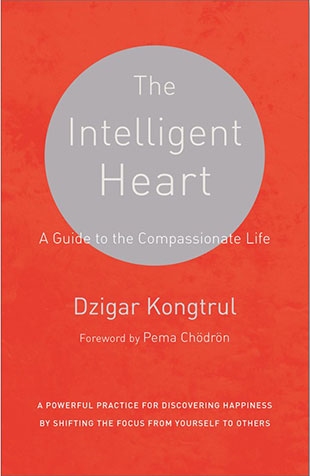"Imagine that you find yourself in the middle of the Sahara Desert, in an infinite vastness of sand. You can't just hang out there. The sun is too hot and there is no food or water. You have no idea which way to go. You have no reference point: in every direction all you can see is sand and more sand. Nevertheless you feel compelled to walk. What else can you do? But the more you walk, the more sand you see. There's no sign of anything but desert – and therefore no hope of any positive outcome. Eventually you will just drop dead, having accomplished nothing.
"Now imagine that you miraculously discover a map, which shows you exactly where you are, why you have been going around aimlessly, and in which direction you need to travel. You find that food, water, and shelter are not hopelessly far away. You have a clear path to survival. Revived by this discovery, you set out in the right direction and become free from your awful predicament.
"In our analogy, the Sahara represents our habitual self-importance, which is so all-encompassing that it seems to have no beginning and no end. The map, which leads us in the direction of altruism, represents bodhicitta, a Sanskrit word that can be translated as 'the mind-set of awakening.' Bodhicitta is the state of mind of the bodhisattvas, those who strive to attain enlightenment for the sake of all sentient beings, devoting themselves, without limit or hesitation, to fulfilling this aim. . . . This extraordinary mind-set is really what we are aiming to develop when we do lojong practices such as tonglen. We all long to be happy and free from suffering, but without bodhicitta we have no orientation toward that happiness and freedom. The attitude of bodhicitta, and the practices that help promote it, give us a way of dealing with our present suffering, and of eventually transcending suffering altogether.
"How bodhicitta works is very simple. When we look outward and see how much all other beings are suffering – even though they want to be happy just as much as we do – then our care for our small, individual self naturally transforms into care for a much bigger 'self.' We grow from having self-care to universal care. Right away our own suffering becomes smaller. It doesn't instantly and totally disappear, but diminishes naturally and progressively as we free ourselves from attachment to the small self. When the sun shines, it absorbs all the light of the moon and stars into its brightness. Similarly, when we have bodhicitta, the brilliant light of our universal love and care outshines and absorbs our concerns for this one individual.
"Instead of dropping dead in the Sahara from thirst, we can travel purposefully and confidently along the bodhisattva's path, until we reach its culmination, which is the complete and irreversible awakening to our own true nature: in a word, 'enlightenment.' Since our true nature is identical to that of the Buddha, when we awaken to it we will be free from all illusions and enjoy limitless wisdom, love, and power to benefit others. Having the opportunity to start to realize our potential in such a magnificent way is why our life is so precious."
